Arts and Culture
Business Strategy
Article
The Culturephiles
b2007557-47dc-437c-9ecb-29cff15d3da4
8 min
https://edge.sitecorecloud.io/tessiturane75c3-tessituraneee12-development-6640/media/Images/Discover-Images/Andrew-Blog/Hometown-Pride/TogetherWeCreate_unsplash_banner_768x465px.jpg?h=465&iar=0&w=768
How cultural organizations are harnessing local pride to engage all audiences
Think local, act local: Hometown pride surges in lockdown

President & CEO, Tessitura
Think local, act local: Hometown pride surges in lockdown
9/24/2020
8 min
How cultural organizations are harnessing local pride to engage all audiences
Since the start of the pandemic, Tessitura has talked with thousands of cultural professionals about their challenges and successes. We have synthesized our learnings into Six Traits of Forward-Looking Cultural Organizations. This post is about Trait 1: Engage All Audiences.
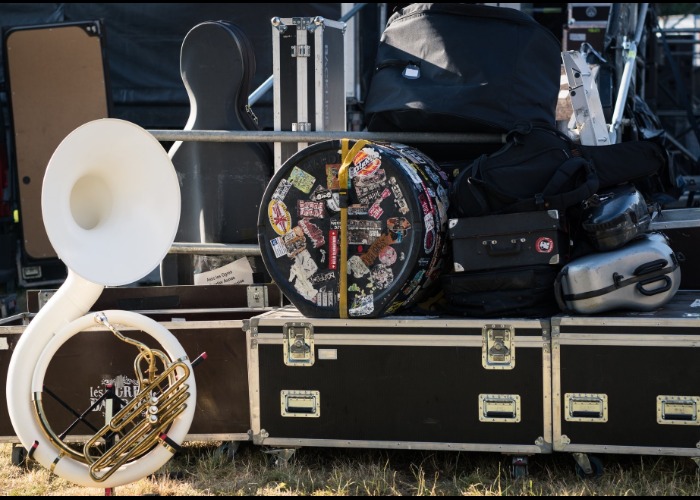
Photo by Antoine Julien on Unsplash
Blockbuster art exhibitions. Hit Broadway tours. Classical music rock stars. For decades, the traditional remit of so many museums, arts centers and presenters has been simple:
Bring global culture to local audiences. Impressionist masterpieces arrive from Paris in crates, musical productions arrive from New York City in trucks and busses, and tonight’s renowned piano soloist just flew in on a red-eye from Zurich.
COVID grounded all of it. Global culture cannot get to your town. Even if it could, most local audiences wouldn’t come out to experience it. As a result, cultural organizations are kneecapped. Or are they?
At Tessitura, we have found that forward-thinking cultural organizations are using this moment to better engage all audiences. And we’ve been delighted to find that some intrepid cultural organizations are accomplishing this by rethinking the traditional global/local script. What if remaining relevant to your audience means thinking locally and acting locally too?
“There is a real sense of what ‘local’ means to people now.”
— Jo Gordon
Hometown Pride
Recently, Tessitura hosted a roundtable for theater executives around the world. Jo Gordon, Chief Executive of Royal & Derngate Theatre in Northampton, UK shared an unexpected outcome of the pandemic: their relevance in their local community has increased. “There is a real sense of what ‘local’ means to people now,” Jo remarked. Northampton is an hour north of London, and before COVID, the gravitational pull of glittering London led some to feel provincial or somehow “less than.”
Not any more.
As Jo said, “Because of the lockdown, we have re-engaged with our local community and it has given people a new perspective on the value of Royal & Derngate. People are celebrating what they miss about us.” to keep in touch while their doors are closed.
These efforts are necessary and welcome. But the forward-thinking organizations are doing more than just reminding folks that they exist. These organizations are taking this time to strengthen bonds with their community.
“Your local community misses the ‘idea’ of your organization. Use this time to strengthen local pride of place and engage your whole community.”
As one example, since they cannot bring acts to town right now, Royal & Derngate has partnered with Delapre Abbey, a beloved local historic house, to continue their film series as a drive-in. This is a new partnership between the two local institutions and it wouldn’t have happened without COVID. Due to the novelty of it, both the theatre and the abbey are seeing new audiences from their own hometown.
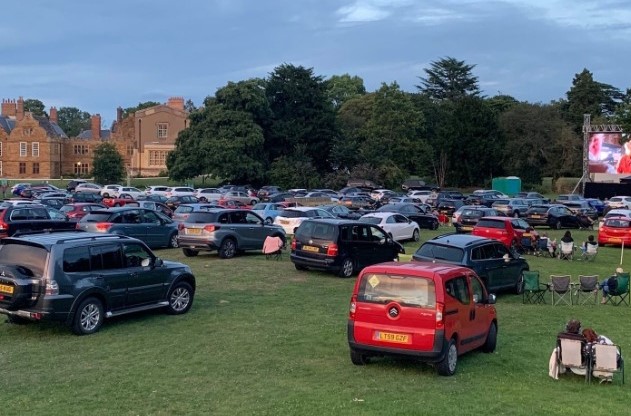
Photo from Royal & Derngate Facebook page
Consider this shift in mindset. Even if they aren’t regular attendees, chances are your local community misses the idea of your organization. What you stand for. What you mean to the life of the community. You can use this time to strengthen local pride of place and engage your whole community..
Hometown Heroes
Johann Zietsman came to Miami, Florida, in early 2019 as the new President and CEO of the Adrienne Arsht Center for the Performing Arts of Miami-Dade County. He began his tenure by conducting town hall meetings in all 14 districts in the county. He wanted to hear what they wanted from their arts center.
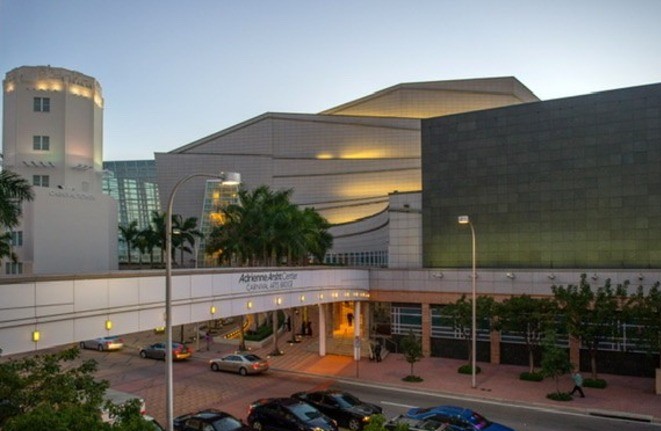
Carnival Arts Bridge. Photo by Justin Namon
At first, he was very encouraged: “We are glad the Arsht Center is here!” he would hear again and again. Like Royal & Derngate, he saw that the local community felt pride of place for the Center. It was the next part that made his heart sink. When he asked about how often they interacted with the Center, he kept hearing the same thing: “It’s not for us.”
Johann found that the community felt an appreciation, but not always a connection, to the Arsht Center. It was from these conversations that the Arsht Center developed a five-year plan called Arsht Connect.
As Johann explained to me, “Miami has incredible local culture. We export it all over the world, but don’t often present it. Our community wanted to see it on our stages too.” Just as Royal & Derngate had connected with their audiences through hometown pride, the Arsht Center realized they needed to engage its community through hometown heroes: celebrating Miami artists.
Historically, the Arsht Center has largely been a presenting organization – bringing global superstars to the local community. As 2020 began, the Arsht Center was just starting the journey to produce local artists.
“The Arsht Center realized they needed to engage its community through hometown heroes: celebrating Miami artists.”
Then the pandemic hit.
As I have heard from many execs, the pandemic has had an “accelerating” effect. Jo Gordon told me, “We’ve had to create programs in ten days that we would normally accomplish in six months.”
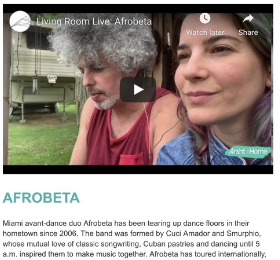
Similarly, with their doors closed, Johann and the Arsht Center super-charged their local producing effort, launching Arsht@Home, a digital collection of performances, lessons, and interviews with Miami artists.
And now, six months in, they have announced a new program called Heart of Art, a commissioning project that will result in new digital works by 30 Miami-area performing artists on the theme of “Art in the Time of Coronavirus.” The hope is to leverage this program to develop new producing relationships with a wide variety of local artists, and bring some to the Arsht stages when they re-open.
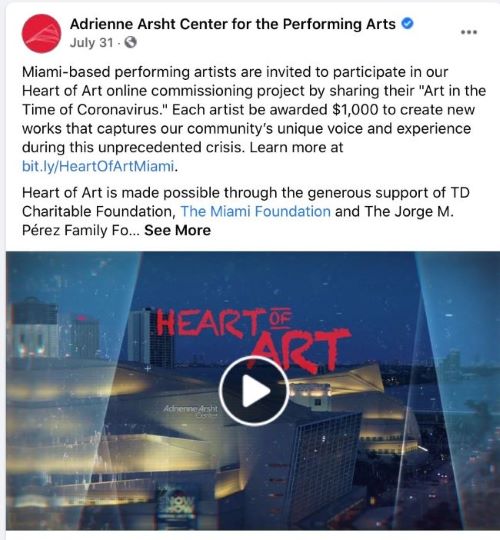
• • •
What will happen on the other side of COVID? Personally, I look forward to the return of international culture to all our cities — the blockbusters, the hit musicals, the classical stars.
“A renewed focus on local artists will be a crucial step for cultural organizations looking to engage all audiences in their community.”
I am equally excited to see this focus on local artists and hometown pride continue. I believe it is a crucial element as cultural organizations look to engage all audiences in their community.
• • •
If you would like to learn more about the Six Traits and evaluate how your own organization is demonstrating them, download our strategy guide.
Topics
Arts & Culture
/Business Strategy
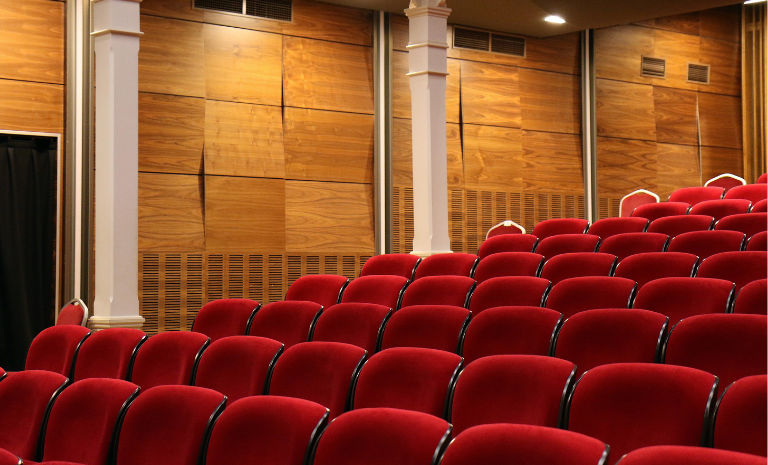
Make your on-sales a success
Ticketing & Admissions / Digital / Customer Service / Technology
Eight tips to help you plan for a smooth on-sale

A contactless customer journey with a personal touch
Arts & Culture / Business Strategy / COVID-19 / Technology / Ticketing & Admissions
How Georgia Aquarium creates a visitor-focused experience